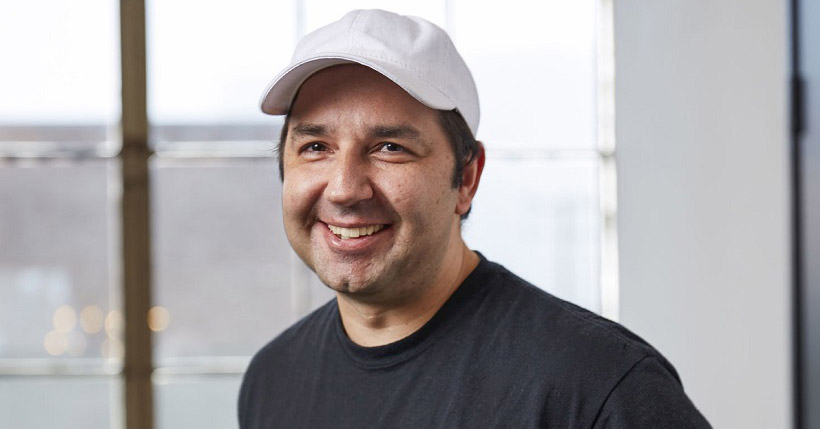Tenant experience is the number one focus for landlords in New York, turning property from B2B to more of a B2C sector nowadays. That’s the view of many of the proptech businesses PlaceTech spoke to ahead of MIPIM PropTech NYC.
Denis Mars is co-founder and CEO of Proxy, the digital identity platform that uses Bluetooth to work systems at work and home. Mars explained: “We have talked with many of the largest landlords in New York, and across the board we are hearing that they are focused on the tenant experience. That’s very different from when we started selling Proxy into commercial landlords two years ago. We are seeing a big technology effect, not just in New York, but across the country. Tenants are focused on more than location and aesthetics and now expect technology amenities and features in their space, and they are willing to pay for it. We’re seeing big demand for our identity signal solutions, which let tenants and guests use their smartphones for secure access instead of keycards or fobs.”
Proxy works with more than 60 corporates including Accenture, Dropbox and Uber. The company launched in March after three years in stealth mode developing its product.

Denis Mars, co-founder and CEO of Proxy
Mars added: “Identity signal solutions have the potential to affect many areas of the tenant experience – not just access, which is already happening today, but also areas like network access, mobile printing, and logging into laptops and conference bridges. It makes a lot of everyday office experiences easier and more seamless for tenants and guests, while improving security for landlords.”
A rapidly growing area for tenant experience is around improving the facilities and property management through technology such as community engagement apps.
Gabrielle McMillan, CEO of NYC-based tenant experience technology firm Equiem, said: “In today’s market, landlords who want to appeal to the corporate tenant, must first demonstrate they can appeal to their employees. Focusing on improving workplace user experience could therefore be the difference between a fully let building and a vacant one.
« With most mid-to-large firms battling to recruit top talent, the workplace has become a key point of difference in the recruitment process. Tenants now overlook any building or workplace that doesn’t help them attract and retain talent, meaning commercial landlords are under huge pressure to provide spaces that focus on the end-user and satisfy employees. Put simply, commercial real estate is no longer B2B, it is now B2C too. »

“However, the reality is that most workplaces don’t meet the expectations of the modern US office worker. 94% of respondents to our recent US Office Tenant survey said that the average US office needed to place a greater emphasis on users’ enjoyment and comfort. The vast majority of landlords therefore face a huge challenge in transitioning their offer. »
“The starting point has to be a better understanding of what exactly individual users are looking for. This changes from building to building but we believe proptech solutions that facilitate better communication and analysis on an asset by asset basis ultimately hold the key. Tenant analytics products that measure how users interact with a building and the services, experiences and amenities it offers, can provide owners with rich, actionable feedback. This invaluable intelligence can help landlords tailor their asset management strategy to the needs of every individual in their building, ultimately increasing workplace satisfaction and loyalty – both on the part of the individual and the corporate tenant.”
David Levy, principal at New York landlord Adams & Company, has employed Equiem. He said: “It’s been wildly successful. The tenant portal enables every employee to access a platform of services and goods we have available, from fitness classes to a conference centre, all of the things tenants require and some things that they just like to have.
« The Equiem Portal has changed the way we communicate with our tenants. It has dramatically improved the tenant experience and helped create new relationships and communities within our commercial properties.”
Coyote, which span out of London investment house M7 Real Estate, has 35 clients in Europe running €100bn of assets on the platform in under two years. Clients include Land Securities, Kames Capital, HIH Real Estate and Benson Elliot.
Oli Farago, CEO of Coyote, said: “Led by strong market demand from both our existing client base with global portfolios and inbound demand from new US based businesses, we have decided the next logical market for Coyote to enter is the US. We are currently in final negotiations with several US headquartered companies about a similar approach.
“It is important to focus on the user because they will make or break your product. Simple as that. Get it wrong; it’s game over. Get it right and you’re well on the way to a successful SaaS business. »
“The only way to get it right is to truly understand users’ problems, you can’t just work from assumptions. You also have to follow the habits of users, where are the repetitive pain points, and how best can they be solved? If you aren’t delivering a product that allows your clients, to make a clear ROI, do their jobs easier, faster and most importantly, drive greater returns, you are destined to fail.”
Proxy’s Denis Mars believes that “one challenge for proptech vendors is that user expectations are so high.”
He continued: “Many of us are replacing old-school tools with software. In Proxy’s case, for instance, we are often replacing 20-year-old keycard systems. Those systems may be inconvenient – our survey showed that 1 in 5 people lose their card each year – but they are very reliable. Proxy’s digital replacement has to be just as reliable or building owners and tenants won’t switch over. I think a lot of proptech vendors don’t get that. Novelty may get you some pilots, but to really cross that chasm you need to be better than what you’re replacing in every aspect.”
The gulf between B2B and B2C is closing and the sooner the property world understands that the better placed it will be to remain relevant in the new more exacting marketplace.
Continue the conversation at MIPIM PropTech NYC: https://nyc.mipim-proptech.com/en.html



